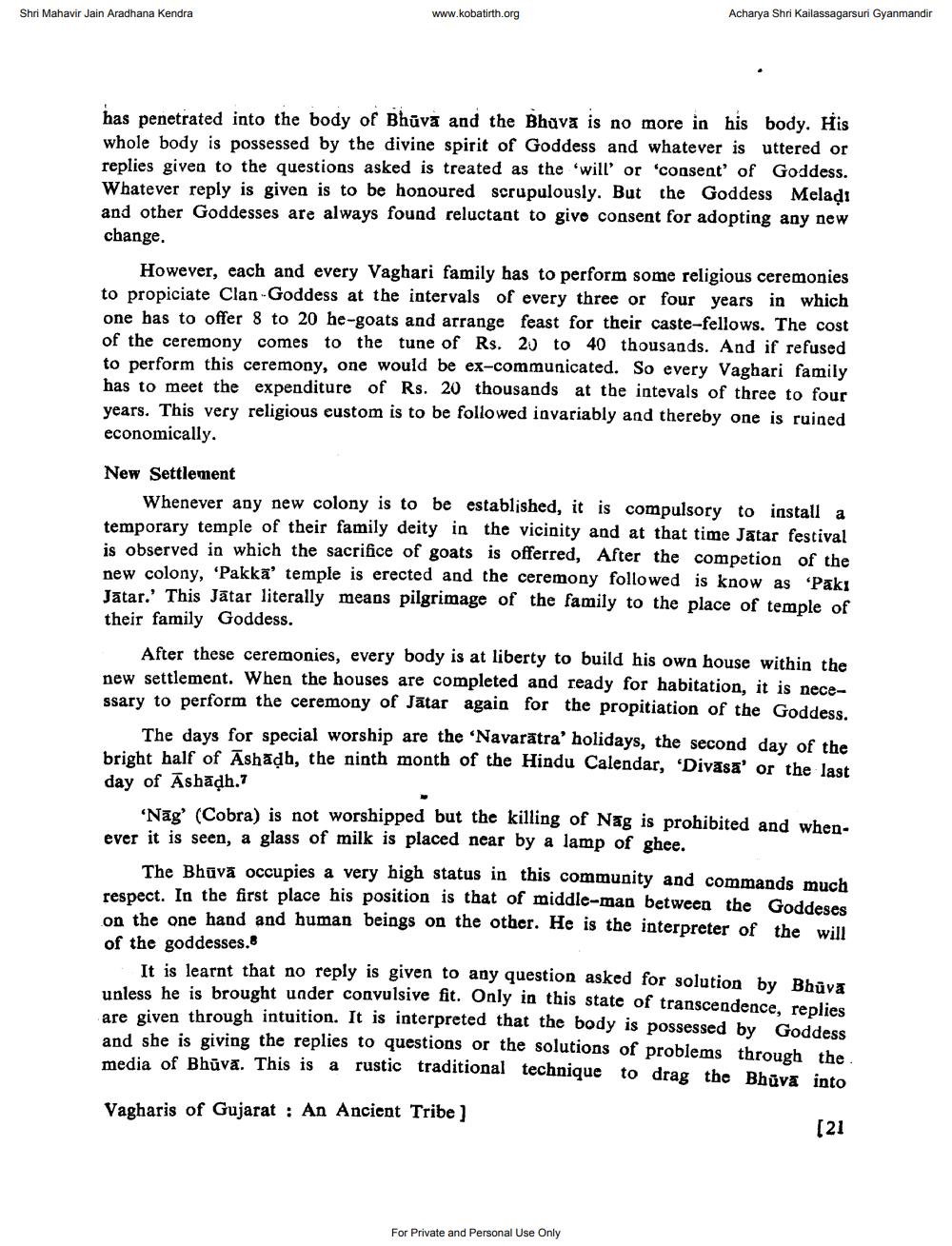________________
Shri Mahavir Jain Aradhana Kendra
www.kobatirth.org
Acharya Shri Kailassagarsuri Gyanmandir
has penetrated into the body of Bhūva and the Bhava is no more in his body. His whole body is possessed by the divine spirit of Goddess and whatever is uttered or replies given to the questions asked is treated as the 'will' or 'consent of Goddess. Whatever reply is given is to be honoured scrupulously. But the Goddess Meladı and other Goddesses are always found reluctant to give consent for adopting any new change.
However, each and every Vaghari family has to perform some religious ceremonies to propiciate Clan-Goddess at the intervals of every three or four years in which one has to offer 8 to 20 he-goats and arrange feast for their caste-fellows. The cost of the ceremony comes to the tune of Rs. 20 to 40 thousands. And if refused to perform this ceremony, one would be ex-communicated. So every Vaghari family has to meet the expenditure of Rs. 20 thousands at the intevals of three to four years. This very religious eustom is to be followed invariably and thereby one is ruined economically.
New Settlement
Whenever any new colony is to be established, it is compulsory to install a temporary temple of their family deity in the vicinity and at that time Jatar festival is observed in which the sacrifice of goats is offerred, After the competion of the new colony, 'Pakka' temple is erected and the ceremony followed is know as 'Pakı Jatar.' This Jātar literally means pilgrimage of the family to the place of temple of their family Goddess.
After these ceremonies, every body is at liberty to build his own house within the new settlement. When the houses are completed and ready for habitation, it is necessary to perform the ceremony of Jātar again for the propitiation of the Goddess.
The days for special worship are the 'Navaratra' holidays, the second day of the bright half of Āshadh, the ninth month of the Hindu Calendar, 'Divāsa' or the last day of Ashādh.7
'Nag' (Cobra) is not worshipped but the killing of Nag is prohibited and whenever it is seen, a glass of milk is placed near by a lamp of ghee.
The Bhūvă occupies a very high status in this community and commands much respect. In the first place his position is that of middle-man between the Goddeses on the one hand and human beings on the other. He is the interpreter of the will of the goddesses.
It is learnt that no reply is given to any question asked for solution by Bhuva less he is brought under convulsive fit. Only in this state of transcendence, replies are given through intuition. It is interpreted that the body is possessed by Goddess and she is giving the replies to questions or the solutions of problems through the media of Bhūva. This is a rustic traditional technique to drag the Bhuva into
Vagharis of Gujarat : An Ancient Tribe]
[21
For Private and Personal Use Only




